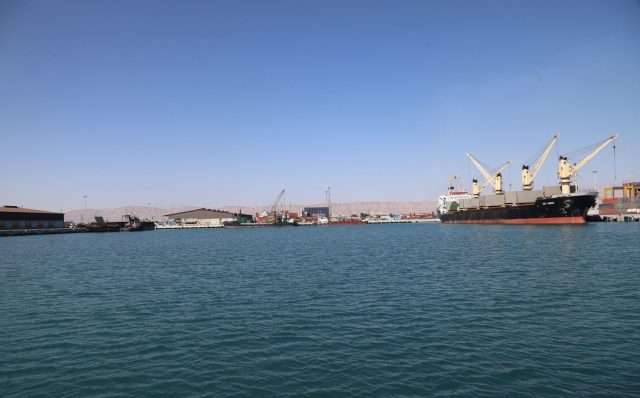Japanese interests in Iranian ports and the Persian Gulf

Persian Files ISSN 2975-0598 Volume 7 Issue 3
Author: Silvia Boltuc
The recent meeting between the Japanese Ambassador in Iran and the head of the Ports and Navigation Department of the Hormozgan province to discuss investments underlined Japan’s interests in expanding maritime cooperation in the Persian Gulf exploiting the Iranian ports’ role.
Japanese Ambassador to Tehran, Aikawa Kazutoshi, visited the port of Shahid Rajaee in the Hormozgan province of Iran. The mentioned port is one of the two parts of the port of Bandar Abbas, located on the north shores of the Strait of Hormuz.
During his visit, the Ambassador met Alireza Mohammadi Karaji-Ran, head of the province’s Ports and Navigation Department, and explored areas of mutual interest for future cooperation. The development of maritime shipping was one of Japan’s most vital goals in the last decades. Tokyo seeks to expand maritime cooperation with strategic infrastructures such as the Iranian port.
Enjoying the most modern container terminals and port equipment, Shahid Rajaee accounts for 85% of the total loading and unloading at the Iranian ports. In addition, the infrastructure offers many advantages as access to open waters, connectivity with Gulf Arab countries’ ports, access to Bandar Abbas International Airport, and availability of land for production activities.
Aikawa stressed that the port might attract foreign investors due to its strategic position and existing capacity. The Japanese Ambassador concluded his visit assuring Iranian representatives that he would prepare the ground for further cooperation by handing over the advantages and opportunities of the port, discovered during its mission, to Japanese economic officials.
Last year, the Iranian Ports and Maritime Organisation (PMO) signed six memorandums of understanding with domestic companies to invest 100 trillion rials plus 800 million euros in Shahid Rajaee port’s hinterland development projects.
Why does Japan interest in Iran matter?
The Iran nuclear deal, known as the Joint Comprehensive Plan of Action (JCPOA), could be agreed upon soon. Several international and regional power seem to have confidence in the finalisation of the agreement as being attracted by the potential of an Iran freed from sanctions, they begin to discuss investments with Tehran.
After China and India, Japan could be a new significant investor in Iranian ports. Japanese Ambassador expressed its hope that Japan-Iran trade will return to its previous state, stressing that faster transport routes and a high level of security have made Iran the best transit point.
The port of Shahid Rajaee has a unique position inside the Strait of Hormuz, in front of the Omani and Emirates coasts. It should be noted that the Japanese Ambassador visits the port in the Hormozgan province following the recent agreements discussed between Iran and the two Gulf littoral countries, Oman and the United Arab Emirates, that enhance their maritime cooperation and connection.
Iran has a unique position at the crossroad of vital regional corridors, such as the Belt and Road Initiative and the International North-South Transit Corridor. It has access to international waters and increasing connections with critical Gulf Arab countries’ ports. The port of Shahid Rajaee is located inside the Strait of Hormuz, through which every day passes around 18 million barrels of oil. After returning to the JCPOA, Iran, one of the biggest oil and gas producers, is likely to re-enter the petrochemical market, and its ports will serve its import and export necessities.
Finally, it is of fundamental importance to highlight that the port is a Free Economic Zone, which will offer international companies profitable opportunities for investments and cooperation in the event of the removal of sanctions.
On Thursday, February 3rd, 2022, SpecialEurasia will organise a webinar in the Italian language titled “Geopolitics of the Middle East: regional dynamics, economic interests and terrorism” to analyse and discuss current geopolitical trends in the Middle Eastern region.
Do you like SpecialEurasia reports and analyses? Has our groundbreaking research empowered you or your team? Now is your chance to be a part of our mission! Join us in advancing independent reporting and unlocking the secrets of Eurasia’s complex geopolitical landscape. Whether through a one-time contribution or a monthly/yearly donation, your support will fuel our relentless pursuit of knowledge and understanding. Together, let’s pave the way for a brighter future. DONATE NOW and secure your place in shaping the geopolitical narrative.
